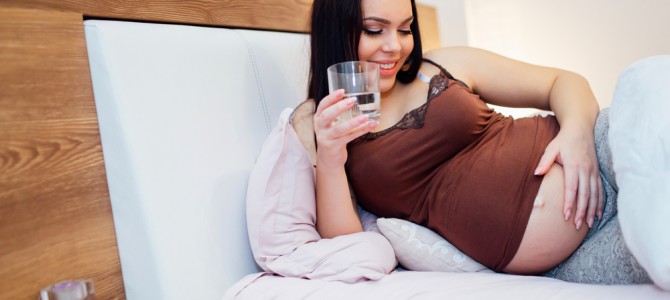I have some important questions I’d like the Centers for Disease Control to answer. First, are unborn babies people? Second, does alcohol impregnate women? Third, who monitors their infographics and let the latest creepy one slide through?
“CDC: Young women should avoid alcohol unless using birth control” is the conclusion news agencies are drawing from the newest CDC recommendations on alcohol and women, and it’s a reasonable reading of the information they just released.
While alcohol is a regular part of the lives of many adults, including many women, this all needs to change now, according to the CDC. Women should no longer drink alcohol unless they’re absolutely sure they’re taking steps to make sure they don’t get pregnant.
Wait, what?
It’s right here on this helpful infographic from the CDC, “Advise a woman to stop drinking if she is trying to get pregnant or not using birth control with sex.” Drinking too much can also have risks for women—for all women, and among those risks are, “Unintended pregnancy.”

When headlines from an agency report are so sensationalized, it decreases the credibility of the whole idea they’re trying to promote—that alcohol in excessive quantities is harmful to all people. All people includes women. This message is hidden behind an alarming, slightly creepy graphic of faceless women demurely contemplating how their solo drinking is bringing woe upon woe to their lives—violence, pregnancy, injuries, and fertility problems!
I’m side-eyeing you here, CDC.
Don’t Forget the Men
Alcoholism is a serious problem. Fetal alcohol spectrum disorders are also serious. But this report doesn’t give us any real information. It assumes women are stupid. It’s paternalistic and, frankly, more than a little misogynistic. There’s a clear and growing body of evidence that sperm health plays an important role in healthy children, too.
If all people of reproductive age are now potential incubators or fertilizers for future children, this should have been aimed at all adults, not just women. Men, have you taken a moment to consider your sperm health today? Put down that bacon, snuff out that cigarette, and step away from the beer. You might impregnate someone today! Think of the children, okay?
So Are Babies Real People Now?
While we’re thinking of the children, let’s talk about who these children actually are. Are we all agreeing that the unborn are real, actual people now? Are they legitimate humans, and therefore needing protection and care like other people? Or are they blobs of cells and unimportant until we decide we really want them? There’s a big divide between these ideas, and the CDC should let us know which is correct.
If the unborn aren’t babies, aren’t people, why does this matter? If clumps of cells aren’t really alive, why should all adults curtail legal and often enjoyable activities for them?
If my reading comprehension is on point today, it also looks like the CDC believes drinking may cause pregnancy. I’m not alone in this interpretation, either. From Alexandra Petri: “Who knew that drinking alcohol could give ‘any woman’ a sexually transmitted disease? That’s the last time I drink merlot alone in my apartment. I don’t want herpes. Furthermore, I had no idea that drinking eight beverages a week could result in a baby. I always thought, somehow, that there were other activities involved. But the CDC knows best.”
Scare Tactics for Bad Information
This is purely an aesthetic complaint, but I really don’t like the whole dystopian paper doll graphic feel. None of the three women pictured have eyes, although two are fortunate enough to have lips. I’m distracted from their five easy steps to avoid alcohol during pregnancy.
Scientists and policy makers aren’t all in agreement on this issue. This book, recently released, has current research about how occasional drinking won’t hurt your baby (or cause you to spontaneously, immaculately conceive a baby). European guidelines have shown that light (up to eight drinks a week, the same number used by the CDC to suggest harm!) drinking during pregnancy is not likely to ruin your children forever.
It’s always a good time to talk about the best way to give our children a good start in life. The way to help people make good choices is to give them accurate, factual information, and treat them like adults able to make good decisions. Instructing women that the only responsible behavior is constant birth control use unless they want a baby, and only drinking when they’re contracepting, is nonsensical and unrealistic. Women are smart. Give us all the information and let us make some actual choices.









